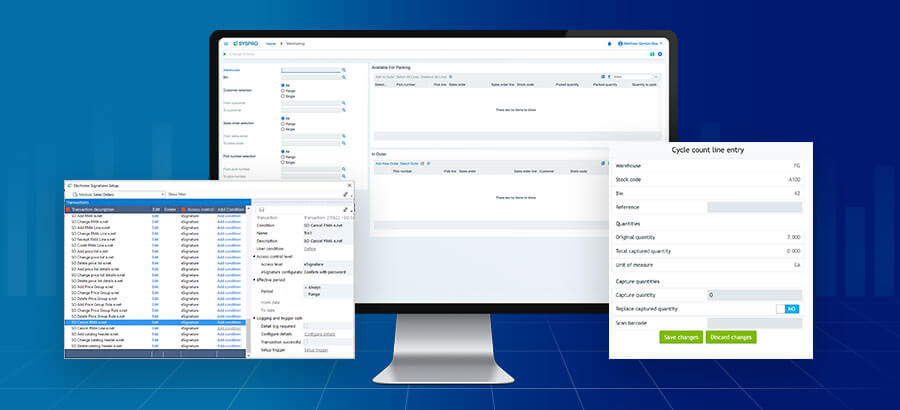If I were allowed only one word to describe the most important feature of an effective ERP solution for the electronics industry, it would have to be “flexibility”. Electronic manufacturers, which run the gamut from small, purpose-build shops, to mid-size chip foundries, to billion-dollar giants mass producing consumer electronics, often require more than the usual flexibility from their ERP.
Consider the realities. More than most industries, electronics is subject to extremely rapid market changes, as well as to constantly-shrinking turnaround times and product lifecycles. To further complicate matters, an electronics business may operate in one or several of the following manufacturing modes: Make to Order, Make to Stock, Engineer to Order or Job Shop. Add to all that an unusually lengthy list of regulatory, labelling, traceability, recall and product-return requirements, and it’s easy to understand the need for an integrated, agile, scalable, and extremely flexible ERP solution.
The Tangible Benefits
A well-designed ERP system needs to be able to help its electronics customers to turn profits (even during economic downturns) by improving product lifecycle management, assisting with collaboration with suppliers and customers, guaranteeing production quality, optimizing inventory levels, and achieving efficiencies in quoting, planning and scheduling.
Electronics companies can be vulnerable to supply chain disruption, and require better-than-average order entry, order placement, receiving and inventory management. A flexible solution is designed to integrate easily and transparently with suppliers’ accounting systems, to provide insight into pricing, stock status, order status and shipping times. A manufacturer’s supply chain software should sync as closely to real time as possible. In addition, it should be transparent and unified, encompassing suppliers, customers, and sub-contractors.
A Constantly Evolving Industry
Apart from clothing and fashion, it’s hard to imagine an industry that goes through more design revisions than electronics. Constant innovation and product improvement means that the efficient management of design changes can spell the difference between profitability and failure. Perfecting the management and control of electronic design processes, including the security and multilingual capabilities required to interact along international value chains, is a critical function of the right ERP system.
Traceability (and recall management) is also mission-critical for many electronic fabrication plants, especially ones that utilise expensive raw materials. Lot Traceability modules will help to track availability and cost, as well as the performance of machinery, people and suppliers. Traceability data can be used to optimise production, reduce defects, minimise returns and monitor the supply base. While the resulting information is always pertinent, its availability and accuracy can be crucial in the event of a recall, quickly identifying affected production runs, as well as customers who received defective product.
Supporting the Supply Chain
For a variety of historical reasons, many electronics companies continue to run their companies on outdated legacy systems, or on a patchwork of barely-connected ad hoc software. Without a “single source of truth” such enterprises are at a distinct competitive disadvantage. Missing or duplicate data makes them poor candidates for LEAN efficiencies, and renders them “out-of-the-loop” when it comes time to collaborate in globally-expanding value chains. To make matters worse, last-decade’s business solutions will be a barrier to adoption of Industry 4.0 technologies, such as the Internet of Things and Predictive Analytics.
As 2018 unfolds, I expect to see the electronics industry’s ERP adoption rate improve. They can, in my opinion, provide the ideal solution to the pressing, evolutionary, and even revolutionary needs of electronics manufacturers.






